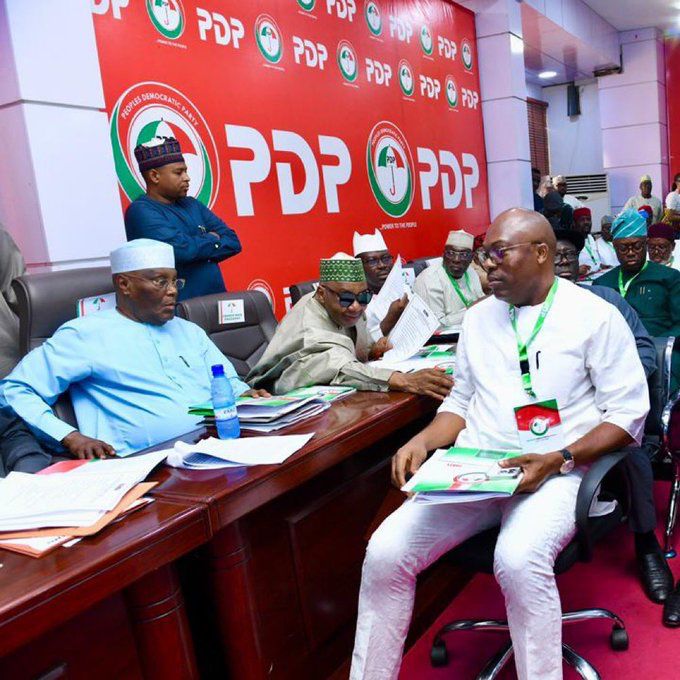Although love is the foundation of any happy romantic relationship, love is not enough. In order to have a healthy relationship, both parties have to be willing to work on it. Below you’ll find 18 ways to keep your relationship strong.
Practice acceptance and appreciation.
The keys to mindful loving are acceptance and appreciation. Here’s a quote from Richo that expresses this idea: “In a true you and I relationship, we are present mindfully, non-intrusively, the way we are present with things in nature. We do not tell a birch tree it should be more like an elm. We face it with no agenda, only appreciation . . .”
Up and Downs
Recognize that all relationships have their ups and downs. Just as you can’t expect to be happy all the time, you shouldn’t expect your relationship to be at a continuous high. When you make a long-term commitment to someone you have to be willing to ride the highs, as well as the lows, together.
Use the word “we”.
Research proves that couples who use the word “we” when talking are happier, calmer, and in general are more satisfied with their relationships than couples whose communication is more populated by the pronouns “you”, “me” and “I”.
The word “we” is a game changer. It sets off a program of connectedness in the brain so that instead of being in a “you vs. me” mindset, we’re in a collaborative mindset. This collaborative mindset makes us more loving and generous.
Follow the three-day gratitude plan.
Having an attitude of gratitude will revitalize your love life. A Study involving 77 married heterosexual and monogamous couples found that with expressed gratitude “participants reported that they felt more loving.”
“They also reported feeling more peaceful, amused, and proud. They perceived their partner as being more understanding, validating, caring, and generally more responsive. They were more likely to have reported spontaneously thanking their partner for something they’d appreciated on any given day. And they were more satisfied with the quality of their relationship overall.”
In order to get started with bringing more gratitude into your relationship recommends the following three-day gratitude plan:
- Day 1: Find three qualities that you love about your partner and focus on those three qualities for the entire day.
- Day 2: Identify three things that irritate you about your partner. Now forgive them for these things.
- Day 3: For the entire day speak only kind words to your significant other.
Think of the three day plan as a cleansing which allows you to clear out feelings that keep your relationship from thriving.
Keep the 3:1 ratio.
Over the course of a day we have a variety of positive and negative experiences. This is also true when it comes to our relationship with our significant other. Most people think that as long as the positive experiences outweigh the negative, everything is fine. However, this isn’t so. It’s the ratio of positive to negative that matters.
Research has shown that the magical ratio for a flourishing relationship is at or above 3:1. That is, you need to have three times more positive experiences with your partner than negative experiences in order to have a healthy relationship.
Keep the novelty alive.
One of the positive aspects of being in a relationship with someone for a long time is that you really get to know each other. The negative side of this is that the novelty wears off, and humans love novelty.
However, there’s a way to keep the novelty alive: constantly try new activities together. This creates the excitement and the uncertainty that comes from the unknown, even if you’re with someone whom you know as well as the back of your hand.
Keep the playfulness alive.
We all love to play, regardless of our age. Do the following: have fun together; do something ridiculous together; and just let go. In addition, the next time that your partner says something that bothers you, try responding with a joke instead of getting defensive.
GIVE YOUR PARTNER SPACE.
The philosopher Arthur Schopenhauer used porcupines to explain a dilemma which often exists in human relationships. Two porcupines trying to keep warm will move closer to one another. However, if they get too close they prick each other with their spines.
The same thing happens in human relationships: we want closeness, but we also want space. The key is to find that sweet spot at which we feel the warmth that comes from being in a relationship, while at the same time allowing each partner to have enough space so that neither one feels like they’re being pricked by the other’s spines (feelings of lost individuality, feeling crowded, and so on).
SHOW EACH OTHER DAILY PHYSICAL AFFECTION.
Kory Floyd, Ph.D – a professor at Hugh Downs School of Communication at Arizona State University—explains that studies show that physical affection has a myriad of benefits. It releases feel-good hormones, it reduces blood pressure, it helps to release stress, it improves mood, and it’s associated with higher relationship satisfaction.
Showing physical affection can be as easy as kissing, holding hands, hugging, giving a back scratch, or putting a hand around the other person’s shoulder.
Use AAA.
Mira Kirshenbaum, psychotherapist and author of “The Weekend Marriage” explains that when your significant other is upset over something you’ve done, you should apply the AAA approach. This stands for apology, affection, and a promise of action. To elaborate:
- Tell your partner that you’re sorry that you’ve hurt or disappointment them.
- Offer a meaningful gesture of warmth, such as a hug or a kiss.
- Pledge to take action that is meaningful to them.

 News6 years ago
News6 years ago
 Featured6 years ago
Featured6 years ago
 Boss Picks6 years ago
Boss Picks6 years ago
 Headline6 years ago
Headline6 years ago
 Headline6 years ago
Headline6 years ago
 Headline5 years ago
Headline5 years ago
 Headline6 years ago
Headline6 years ago
 Headline6 years ago
Headline6 years ago













